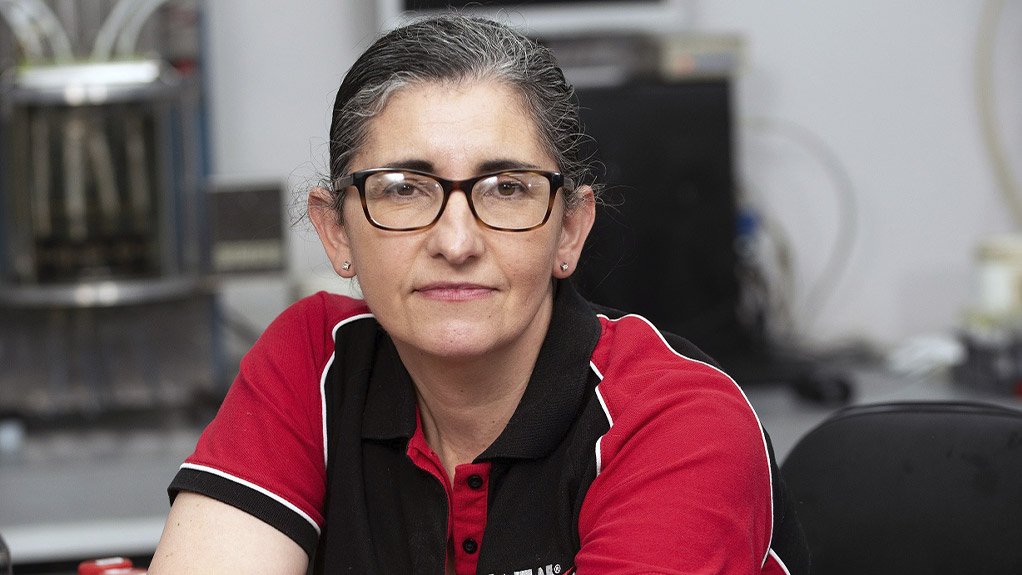The lube kitchen part 2: VI Improvers - the additive with you through thick and thin
This article has been supplied.
(Virtual Showroom)Condition monitoring specialist company, WearCheck, examines a very special class of additives that is gaining importance as the technical demands placed on lubricants continue to grow at an ever-increasing rate – Viscosity Index Improvers (VIIs).
Technical manager for WearCheck, Steven Lumley, explains, ‘VIIs are large-polymer additives that partially prevent the oil from thinning out (losing viscosity) as operating temperatures increase. They are also responsible for better oil flow at low temperatures, resulting in reduced wear and improved fuel economy.
‘To visualise how a VII additive functions, think of the VII as an octopus that stays coiled up in a ball at low temperatures and has very little effect on the oil’s viscosity.
‘Then, as the temperature rises, the additive (or octopus) expands or extends its tentacles, making it larger, and preventing the oil from thinning out too much at high temperatures.
‘VIIs are used in multi-grade engine oils, automatic transmission fluids, power-steering fluids, gear oils, and certain hydraulic fluids. By far, the most common application is for passenger cars and heavy-duty trucks in on-highway and off-highway applications. Over 80% of all VIIs sold in the lubricant market globally are used in these applications.
‘Unfortunately, VIIs do have a couple of negative attributes. The additives are large (high molecular weight) polymers, which makes them susceptible to being cleaved into small pieces due to shearing forces experienced in certain mechanical environments e.g., gears are notoriously hard on VII additives. Permanent shearing of the VI-improver additive can cause significant viscosity losses.
‘A second type of viscosity loss occurs due to high shearing forces in the load zone of frictional surfaces e.g., in journal bearings. The VII loses its shape or uniform orientation and therefore loses some of its thickening ability. When this happens, the viscosity of the oil temporarily drops within the load zone, but rebounds to its normal ‘viscosity after it leaves the load zone.
Higher-molecular-weight VIIs make better thickeners, but tend to have less resistance to mechanical shear. Lower-molecular-weight VIIs are more shear resistant, but do not improve viscosity as effectively at higher temperatures and, therefore, need to be used in larger quantities.
‘There are several different types of VII additives, but not all are equal. High-quality VIIs are less susceptible to permanent shear loss than low-cost, low-quality VIIs. It is for this reason that the polymer(s) selected is/are vital to the effectiveness of the VII additive and over-all performance of the lubricant at varying operating temperatures. This is especially true of high-temperature, high-shear (HTHS) applications.
‘Equipment tolerances, along with increased complexity and performance expectations create an environment of increased stress for the lubricant to operate in due to higher shear forces, higher operating temperatures, increased pressures etc. ‘Selecting the optimal VII for use in these environments is increasingly important, as formulators search for ways to minimise HTHS viscosity at higher temperatures to improve fuel economy.
‘As equipment manufacturers continue to move to both low-viscosity grades and lower (HTHS) lubricants, market demand for this additive is set to increase.’
Article Enquiry
Email Article
Save Article
Feedback
To advertise email advertising@creamermedia.co.za or click here
Comments
Announcements
What's On
Subscribe to improve your user experience...
Option 1 (equivalent of R125 a month):
Receive a weekly copy of Creamer Media's Engineering News & Mining Weekly magazine
(print copy for those in South Africa and e-magazine for those outside of South Africa)
Receive daily email newsletters
Access to full search results
Access archive of magazine back copies
Access to Projects in Progress
Access to ONE Research Report of your choice in PDF format
Option 2 (equivalent of R375 a month):
All benefits from Option 1
PLUS
Access to Creamer Media's Research Channel Africa for ALL Research Reports, in PDF format, on various industrial and mining sectors
including Electricity; Water; Energy Transition; Hydrogen; Roads, Rail and Ports; Coal; Gold; Platinum; Battery Metals; etc.
Already a subscriber?
Forgotten your password?
Receive weekly copy of Creamer Media's Engineering News & Mining Weekly magazine (print copy for those in South Africa and e-magazine for those outside of South Africa)
➕
Recieve daily email newsletters
➕
Access to full search results
➕
Access archive of magazine back copies
➕
Access to Projects in Progress
➕
Access to ONE Research Report of your choice in PDF format
RESEARCH CHANNEL AFRICA
R4500 (equivalent of R375 a month)
SUBSCRIBEAll benefits from Option 1
➕
Access to Creamer Media's Research Channel Africa for ALL Research Reports on various industrial and mining sectors, in PDF format, including on:
Electricity
➕
Water
➕
Energy Transition
➕
Hydrogen
➕
Roads, Rail and Ports
➕
Coal
➕
Gold
➕
Platinum
➕
Battery Metals
➕
etc.
Receive all benefits from Option 1 or Option 2 delivered to numerous people at your company
➕
Multiple User names and Passwords for simultaneous log-ins
➕
Intranet integration access to all in your organisation




















